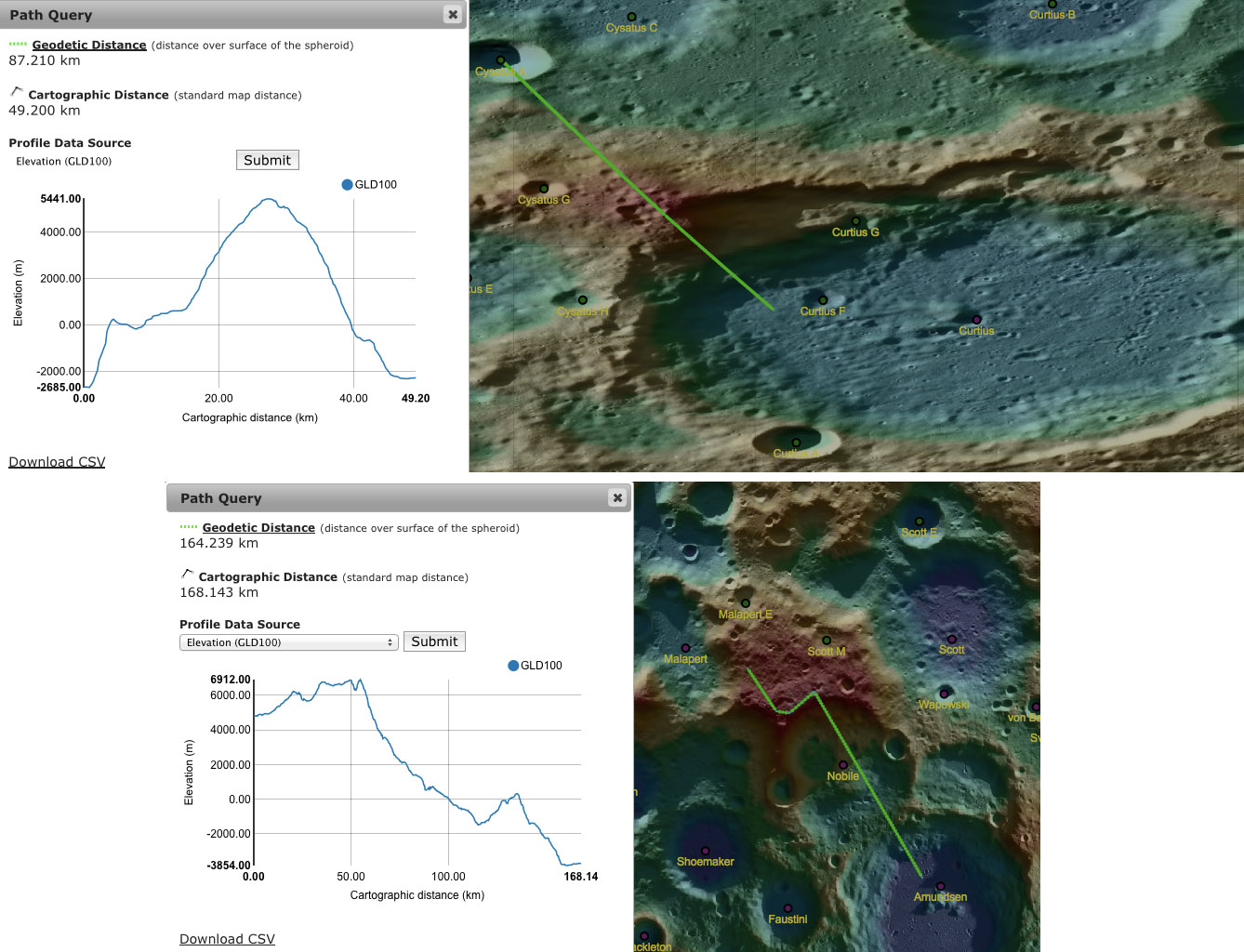December 18, 2024
A New Game
Originally published July 16, 2014

images from LRO QuickMap (NASA/ASU/GSFC)
While looking at the crater Curtius with the LRO QuickMap I clicked on the WAC Colored Shaded Relief option and was surprised to see that it's northwest rim was colored red, meaning that it was high. It is about 5,440 m above the lunar average elevation, much less that higher peaks near the South Pole and on the farside. But I noticed that its distance to the floor of Curtius is rather short so that the average slope from high to low would be somewhat steep. I also noticed that the fresh nearby crater Cysatus A was slightly closer so that the slope from the red peak to the floor of A was 190 m/km. Hmm. I then measured the slope (lower image) Mount Malapert to the floor of Amdundsen and found that although the red peak here is higher (6,900 m), the horizontal distance is greater so the slope is only about 110 m/km. I checked other places and couldn't find any slope that was greater than the one at Curtius that I just stumbled on by accident. That seems unlikely to be the steepest slope in the shortest distance so I challenge you to find a steeper average slope! I have some ideas where to look but am too tired tonight...
Chuck Wood
Yesterday's LPOD: Polar Panorama
Tomorrow's LPOD: Find a Rille, and it Goes Round, Round, Round
COMMENTS?
Register, Log in, and join in the comments.



